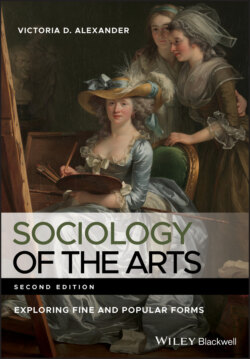Читать книгу Sociology of the Arts - Victoria D. Alexander - Страница 25
Roots of Reflection Approaches
ОглавлениеA theory of reflection is found in Marxism, which posits that the culture and ideology of a society (the superstructure) reflect its economic relations (the base). This idea is “the key to Marxist cultural analysis” (Williams, 1973: 3), as well as providing the initial impetus to the reflection approach. In 1859, Marx himself wrote:
The totality of these relations of production constitutes the economic structure of society—the real foundation, on which legal and political superstructures arise and to which definite forms of social consciousness correspond. The mode of production of material life determines the general character of the social, political and spiritual processes of life. It is not the consciousness of men that determines their being, but, on the contrary, their social being determines their consciousness… With the change of the economic foundation the entire immense superstructure [the combination of legal, political, religious, aesthetic, or philosophical—in short, ideological—forms] is more or less rapidly transformed. (1963 [1859]: 67–8)
In industrial capitalism, for instance, workers labor in factories doing extremely repetitive, boring tasks. Art, then, will reflect these conditions: mass culture is mindless because it reflects the mindless work of the masses. Theodor Adorno (2009 [1941]), a Marxist cultural critic, argues along these lines with respect to popular music.3 Storey (2015: 71) summarizes Adorno’s thinking:
work under capitalism is dull and therefore promotes the search for escape, but, because it is also dulling, it leaves little energy for real escape—the demands of “authentic” culture. Instead refuge is sought in forms such as popular music—the consumption of which is always passive, and endlessly repetitive, confirming the world as it is. Whereas “serious” music…plays to the pleasure of the imagination, offering an engagement with the world as it could be, popular music is “the nonproductive correlate”…to life in the office or on the factory floor. The “strain and boredom” of work leads men and women to the “avoidance of effort” in their leisure time… Denied “novelty” in their work time, and too exhausted for it in their leisure time, “they crave a stimulant” —popular music satisfies the craving.4
